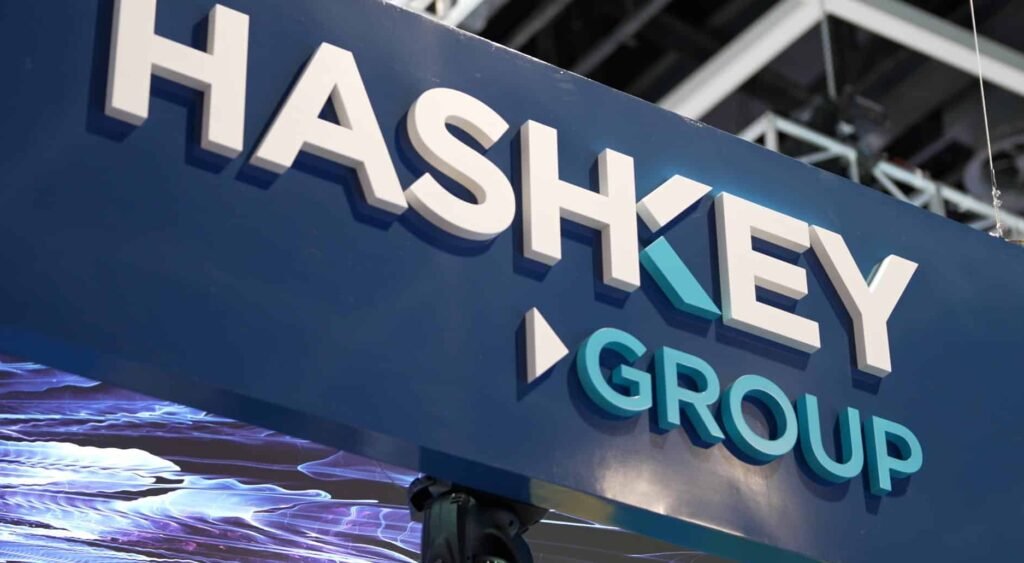MENA is becoming a hub for cryptocurrency, blockchain, and Web3 Companies. Governments worldwide are investing heavily in digital economies due to the revolutionary impact of decentralized finance (DeFi) and blockchain technologies.
HashKey Global, an institutional-grade digital asset platform and Web3 leader in MENA, is changing the market. Sherif Sanad, HashKey Global’s local operations head, has provided incisive insights on compliance, market expansion, and Web2 acceptability.
MENA’s Digital Asset Growth
Regarding the digital assets space, the MENA area offers a special chance for expansion. Its laws are rapidly changing.
Bahrain, Saudi Arabia, and the UAE have used blockchain and bitcoin technology. UAE projects like the Dubai Blockchain Strategy aim to manage the city using blockchain by 2025. Saudi Arabia’s Vision 2030 aims to harness technology and innovation for the development of its economy. Therefore blockchain is a key part of its digital transformation.

Mena’s young, tech-savvy population and expanding demand for digital assets make it suited for Web3 expansion. Web3, the next internet, uses Blockchain-based apps, Cryptocurrency Market, and distributed finance to give customers more control over their data and digital interactions. These allow the region to catch up with global IT trends and lead in digital banking and asset management.
HashKey Global Expansion
With its headquarters in Hong Kong. HashKey Global has made major advances in the MENA region by leveraging its great knowledge of digital asset infrastructure and blockchain technologies. Compliance and Web3 development form the two main foundations of the company’s approach to the area. Leading HashKey’s regional activities. Sherif Sanad has underlined that the company’s strategy is built on fostering trust with local authorities and thereby supporting the general acceptance of blockchain-based technology.
In MENA, success hinges on regulatory compliance, says Sanad. As regulators struggle to define cryptocurrencies, security tokens, and blockchain technologies, they have expressed some skepticism of digital assets. Haskey Global prioritizes local law compliance with MENA’s regulatory bodies, including Bahrain’s Central Bank and the UAE’s Securities and Commodities Authority (SCA). Through this, the company eliminates legal risks and becomes a trusted partner for governments and enterprises entering the digital asset market.
Regulatory Compliance Strategy
The regional strategy of HashKey Global depends much on regulatory compliance. Sanad says that, although the MENA region presents great growth potential, it also calls for a sharp awareness of the regulatory environment. Reducing risks in a sector prone to abuse depends on ensuring adherence to anti-money laundering (AML) and counter-terrorism financing (CTF) legislation.
HashKey Global goes beyond only fulfilling legal criteria. To offer a safe setting for digital asset transactions, it follows strict internal controls and risk management strategies. Crucially, in a market where trust is key, the company’s dedication to openness, due diligence, and risk assessment helps it to develop enduring partnerships with local financial institutions, investors, and other stakeholders.
By giving compliance priority and establishing a high benchmark for industry best practices. HashKey Global is proving that regulatory adherence is not just a need but also a competitive advantage that could propel regional long-term development.
Advancing Web3 Adoption
Apart from stressing compliance, HashKey Global is dedicated to helping Web3 flourish in MENA. The shift from Web2 to Web3 should profoundly impact industries such as finance, entertainment, and supply chains. From a few big companies to personal users, Web3 promises to decentralize control. Web3 enables a more equitable allocation of power and resources within the digital realm.
HashKey Global has positioned itself as an enabler of Web3 adoption in the MENA region by aggressively supporting the creation of decentralized apps (dApps). HashKey Global supports NFTs (non-fungible tokens) and other blockchain-based technologies. Sanad emphasizes how HashKey helps local developers, businesses, and entrepreneurs to build an ecosystem where Web3 innovations could blossom.
Web3 coincides with regional trends as MENA nations—especially Saudi Arabia and the UAE—invest heavily in digital innovation to diversify their economies. Web3 can capitalize from this trend by enabling distributed financial systems and giving consumers more autonomy over their assets and data. Supporting this shift for HashKey goes beyond business expansion to promote a more open, transparent, and efficient digital economy.
Cooperative Education Infrastructure
Looking ahead, Sanad thinks that unlocking the full possibilities of the digital assets market in MENA depends on cooperation. Not working alone, HashKey Global is developing relationships with governments, financial institutions, and IT firms throughout the area. These partnerships rely on a robust infrastructure to support blockchain adoption and ensure the sustained growth of Web3 technologies.

Sanad also emphasizes how education helps promote a deeper understanding of digital assets and blockchain. Providing instructional materials and interacting with local populations can help demystify. These technologies promote more general acceptance as the market in the area develops.
Final thoughts
Built on a basis of regulatory compliance, innovation, and Web3 development, HashKey Global’s approach to the MENA digital assets market is a complete and strategic one. As the region continues to embrace blockchain technology and distributed apps, HashKey stands poised to spearhead this transformation.
Sherif Sanad’s leadership and the company’s dedication to fostering trust with local authorities and stakeholders enable HashKey to spearhead this transformation. HashKey Global is helping MENA to create a safe, open, and vibrant digital asset ecosystem.


